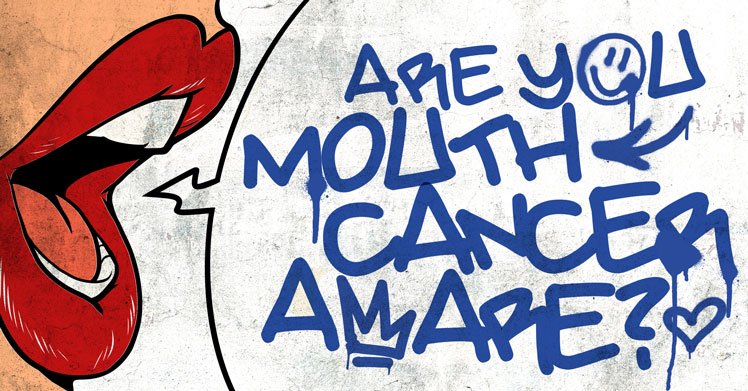More than 1,800 people lose their lives to mouth cancer each year in the UK and it is believed that many of these people could be saved if the cancer had been diagnosed and treated sooner.
Your dentist will perform a full oral health screening during each appointment but with early diagnosis being vital, it is important to know your own mouth and to check it yourself on a regular basis. Anyone can be affected by mouth cancer, even if you wear dentures, if you smoke or drink alcohol then the risk is increased.
Below we have provided a guide so you know what to look for and the best way to check. It is simple and only takes a couple of minutes. That is time well spent if it saves your life!
Head
Look at your face in the mirror, are both sides the same? Is one side swollen, are there any lumps or bumps that weren’t there before? Turn your head from side to side as this pulls the skin tight and helps to make lumps easier to see.
Neck
Check for lumps using your fingers, press gently along the sides and at the front of your neck and along your jaw bone. Is anything tender?
Cheeks
In front of the mirror, open your cheeks in turn so you can see the inside, check for red or white patches and lumps, use your finger and thumb to check for ulcers or tenderness.
Lips
Pull back your lower and upper lips in turn and look inside, have they changed colour? Are there spots or sores? Use your fingers to check for lumps or a change in texture.
Tongue
Again using a mirror, poke out your tongue, look carefully at the top, the sides and underneath in turn. Is it swollen or has it changed colour? Again check for spots, ulcers, swelling or tenderness.
The mouth
Tilt your head back and use a mirror to check the roof of your mouth for any lumps. Run your finger across it to check for a change in texture or tenderness. Lift your tongue and do the same on the floor of your mouth.
If mouth cancer is detected early then the chances of a complete cure are good, however, too many people come forward too late. If you notice any lumps that don’t go away, any numbness of your lips or tongue, or a mouth ulcer that lasts longer than three weeks, you should make an appointment to see your GP or dentist.
